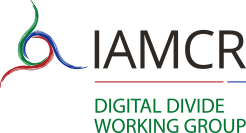
Digital Capital and Political Power: Shaping Inequalities in a Technological Age
On 17 April, 2025, the University of Sharjah (UAE) will host this symposium, organized by the IAMCR Digital Divide Working Group in collaboration with the Mass Media Research Group at the University of Sharjah (UAE).
This symposium will explore the emerging and evolving forms of digital inequalities and their intricate connections with social inequalities. As digital technologies increasingly shape our world, they reflect and amplify existing economic, social, and political divides, both within and across nations. The event will bring together scholars and practitioners to examine these dynamics, offering a platform for in-depth discussions on the complex nature of digital inequalities in today’s society.
Keynote: Dr. Jeremy Schulz, Senior Researcher, ISSI, UC Berkeley (USA).
Key Focus Areas
The evolving nature of Digital Capital. This theme will delve into the concept of digital capital, examining how digital resources and skills are unevenly distributed and how they influence social mobility, economic opportunities, and access to power. We encourage papers that explore the role of digital capital in perpetuating or challenging social inequalities.
Beyond Access: Emerging Digital Divides and Their Implications for Social Justice. This area will address the emerging digital divides that go beyond access to technology, including disparities in digital literacy, quality of digital engagement, and the unequal benefits of digital participation. Submissions are invited to critically analyze these new forms of digital inequalities and their implications for social justice.
Intersection of AI, digital inequalities, and political power. This focus area will explore the intersection of digital technologies and political life, such as the impact of algorithms on democracy, digital surveillance, and the role of social media in shaping political discourse. Papers should investigate how digital technologies are influencing political power dynamics and what this means for the future of democratic governance.

